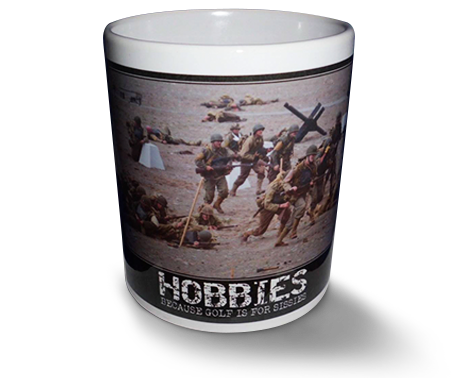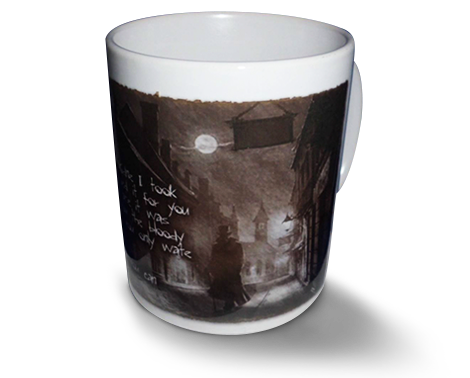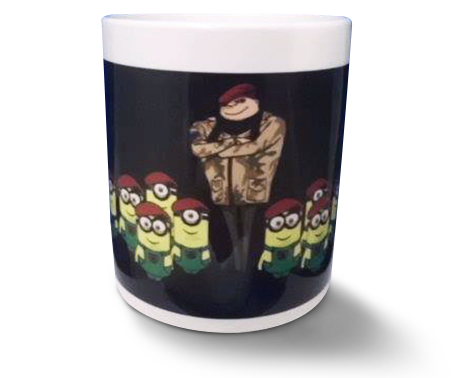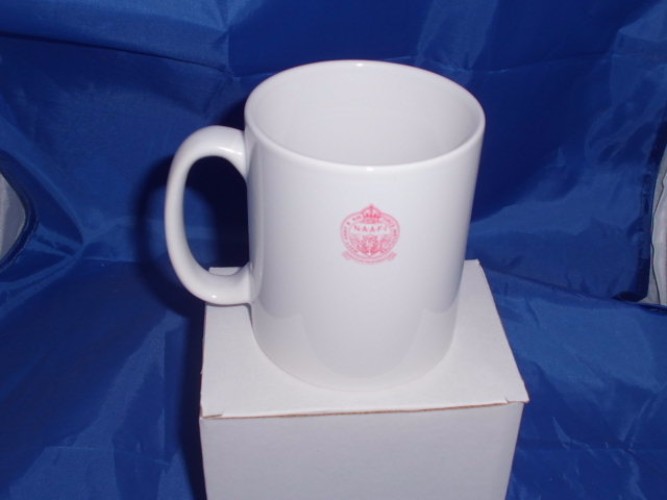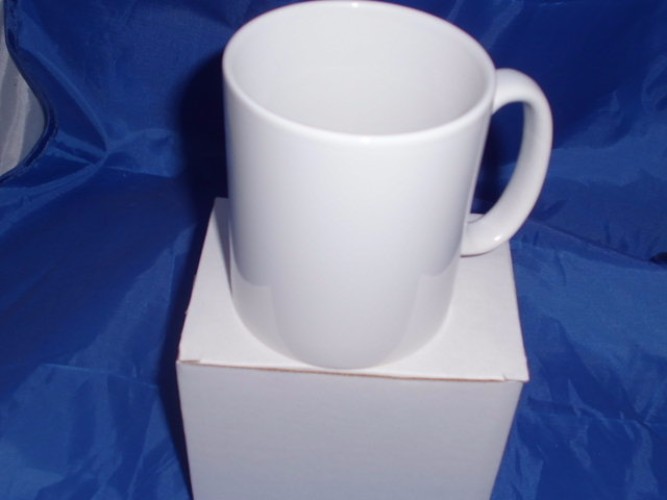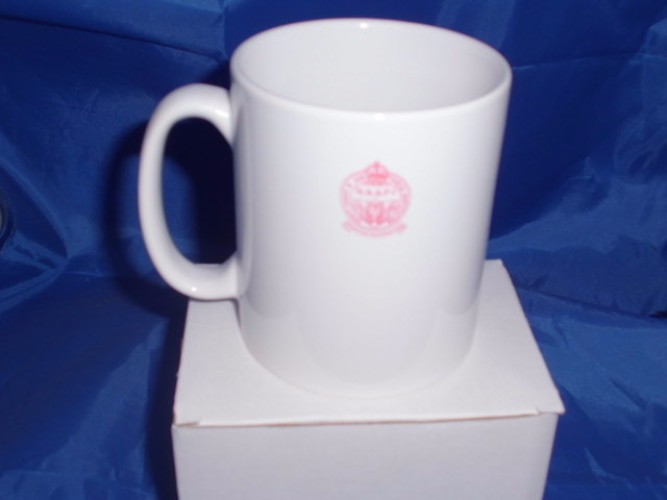NAFFI WW2 Reproduction mug
Loveley reproduction of ww2 NAFFI mug
The Navy, Army and Air Force Institutes (NAAFI) is an organisation created by the Government in 1921 to run recreational establishments needed by the British Armed Forces, and to sell goods to servicemen and their families. Prior to 1914, each unit ran its own canteen, mostly contracted out to private firms. In Victorian times they had a reputation for being expensive, corrupt, unpleasant, and selling inferior goods. In 1894, three Army officers founded the Canteen and Mess Co-operative Society, which improved the situation. It bought canteen goods in bulk and sold them on to the regimental canteens. During the First World War the Expeditionary Force Canteens were created for service overseas, run by uniformed members of the Army Service Corps and absorbing the Canteen and Mess Co-operative Society. On 1 January 1917 the Army Canteen Committee was created to take over canteens at home, later becoming the Navy and Army Canteen Board. In 1919 this also took over the Expeditionary Force Canteens. On 1 January 1921 the Navy and Army Canteen Board formed the nucleus of the NAAFI. NAAFI’s greatest contribution was during the Second World War. By April 1944 the NAAFI ran 7,000 canteens and had 96,000 personnel (expanded from fewer than 600 canteens and 4,000 personnel in 1939). It also controlled ENSA, the forces entertainment organisation. In the 1940 Battle of France alone, the EFI had nearly 3,000 personnel and 230 canteens. Male EFI personnel were members of the Royal Army Service Corps until 1965, then the Royal Army Ordnance Corps. Since 1993 they have been members of the Royal Logistic Corps. Female personnel were members of the Auxiliary Territorial Service until 1949, then the Women’s Royal Army Corps until 1992, when they joined the RAOC (and later the RLC). NAAFI runs clubs, bars, shops, supermarkets, launderettes, restaurants, cafes and other facilities on most British military bases and also canteens on board Royal Navy ships. Commissioned officers are not usually supposed to use NAAFI clubs and bars, since their messes provide these facilities and their entry, except on official business, is considered to be an intrusion into junior ranks’ private lives. NAAFI personnel serving aboard ship are part of the Naval Canteen Service (NCS), wear naval uniform and have action stations, but remain civilians. NAAFI personnel can also join the Expeditionary Forces Institute (EFI), which provides NAAFI facilities in war zones. EFI personnel are members of the Territorial Army serving on special engagements, bear ranks and wear uniform. NCS personnel can similarly volunteer to join the Royal Navy when it goes on active service. Petty Officer John Steven Leake, NCS canteen manager in HMS Ardent, won the Distinguished Service Medal (DSM) in the 1982 Falklands War for his courage while manning a machine gun.

